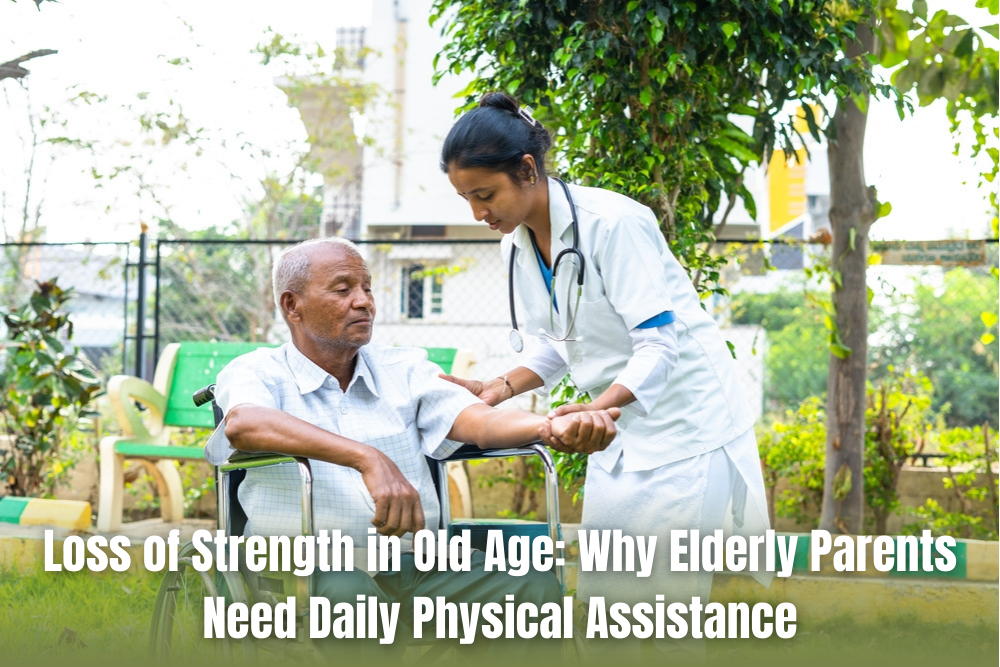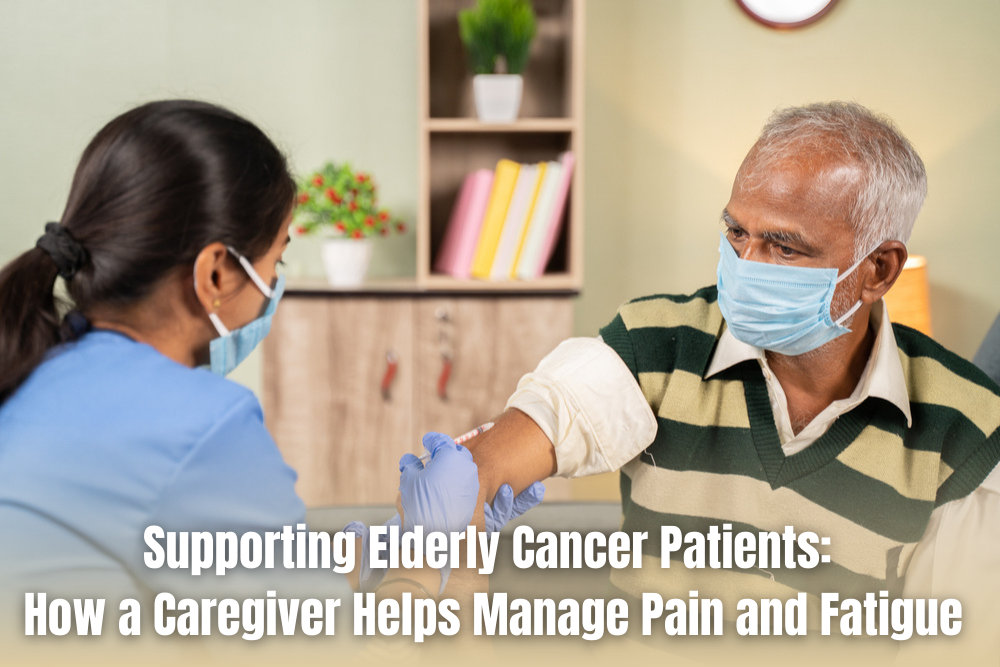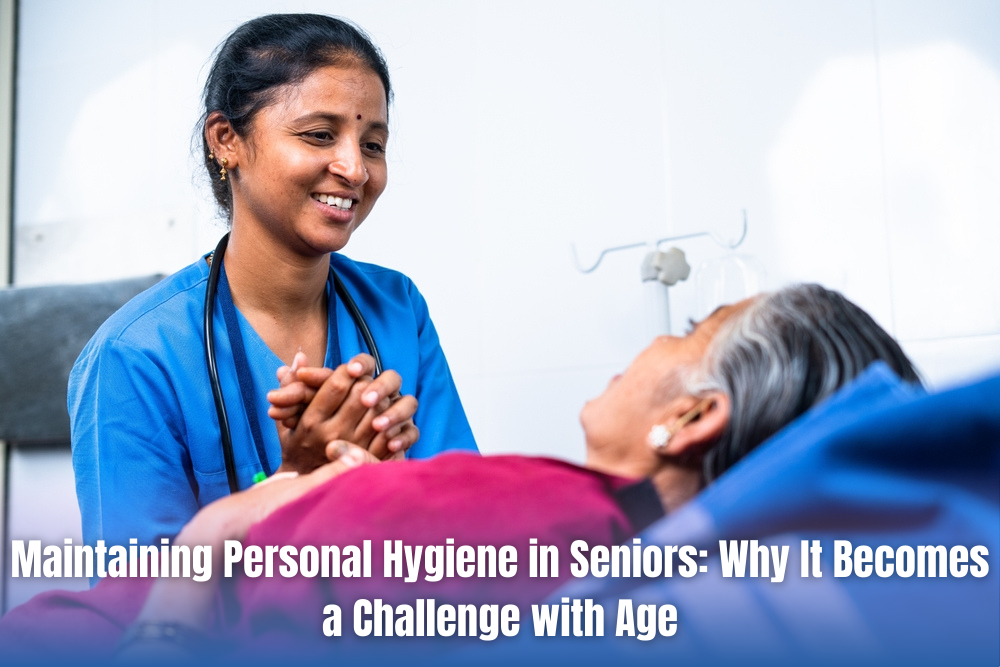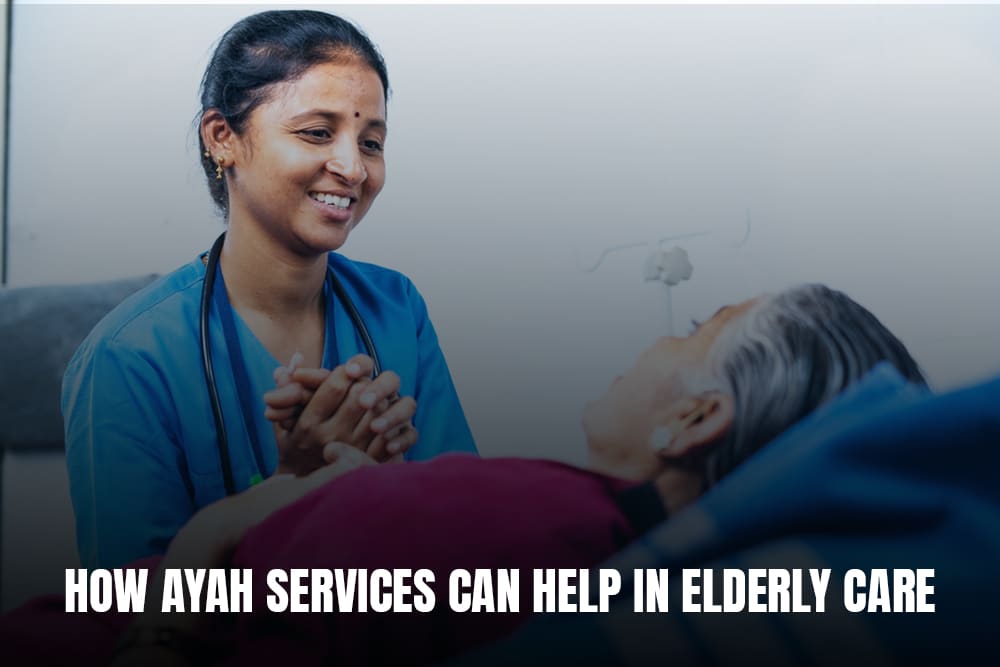As parents grow older, one of the most noticeable changes families see is a gradual loss of strength. Tasks that were once simple standing up, walking to the bathroom, bathing, or even holding utensils can slowly become difficult. This loss of strength is not sudden, but it deeply affects an elderly person’s safety, confidence, and independence.
In this article, we’ll explain why strength reduces in old age, what challenges it creates in daily life, and why daily physical assistance from a trained caregiver or nurse becomes essential for elderly parents.
Why Elderly Parents Lose Strength with Age
Loss of strength is a natural part of aging, but it often increases due to other factors.
1. Muscle Weakening
As people age, muscles naturally lose mass and power. Without regular movement, this weakness progresses faster.
2. Chronic Health Conditions
Diseases like arthritis, diabetes, heart problems, osteoporosis, or lung issues reduce stamina and mobility.
3. Long Periods of Bed Rest
After illness, surgery, or hospitalisation, elderly parents often become weaker because their muscles are not used enough.
4. Poor Nutrition
Low appetite, digestion issues, or improper diet can cause low energy and muscle weakness.
5. Fear of Falling
Many seniors avoid moving because they are scared of falling. Unfortunately, less movement leads to even more weakness.
Daily Challenges Caused by Loss of Strength
When strength reduces, elderly parents face many everyday difficulties:
- Trouble getting out of bed or chairs
- Difficulty walking or climbing steps
- Risk of slipping or falling in the bathroom
- Fatigue while bathing or dressing
- Dependence on others for basic needs
- Loss of confidence and emotional stress
These challenges can make seniors feel helpless and frustrated if they don’t get the right support.
Why Daily Physical Assistance Is Important
Daily physical assistance doesn’t mean taking away independence—it means supporting seniors safely so they can continue living with dignity.
1. Prevents Falls and Injuries
A trained caregiver helps elderly parents walk, stand, or move safely, reducing the risk of falls and fractures.
2. Helps with Safe Daily Movement
Caregivers assist with:
- Getting in and out of bed
- Walking inside the house
- Bathroom visits
- Sitting and standing safely
This keeps muscles active without strain.
3. Encourages Gentle Activity
With proper assistance, seniors can do light movements or doctor-recommended exercises, which helps slow further strength loss.
4. Reduces Physical Strain on Family Members
Helping an elderly person move without training can cause injury to both the senior and the family member. Trained caregivers know the right techniques.
5. Maintains Confidence and Dignity
When assistance is given patiently and respectfully, seniors feel supported—not dependent or embarrassed.
Who Can Provide Daily Physical Assistance at Home?
Caretakers
Caretakers are ideal for daily physical support such as:
- Walking assistance
- Bathing and toileting
- Dressing and grooming
- Feeding support
- Companionship
Nurses
If weakness is linked to medical conditions, nurses can help with:
- Monitoring vitals
- Post-illness or post-surgery care
- Oxygen or injection support
Wardboys
For bedridden or extremely weak patients, wardboys assist with:
- Lifting and repositioning
- Bed care and hygiene
- Physical support similar to hospital care
Why Home Assistance Is Better Than Managing Alone
With daily physical assistance at home:
- Seniors stay in familiar surroundings
- Risk of accidents reduces
- Strength decline slows down
- Emotional stress reduces
- Hospital visits become less frequent
- Families feel more relaxed and confident
Shree Swami Samarth Patients Seva: Reliable Daily Support for Elderly Parents
At Shree Swami Samarth Patients Seva (www.sssps.in), we understand the physical challenges elderly parents face every day.
Our trained caretakers, nurses, and wardboys:
- Assist with daily movement and mobility
- Provide safe physical support
- Help seniors regain confidence
- Offer full-time and 24/7 care options
- Treat every elderly person with respect and patience
We believe elderly care is not just about helping—it’s about supporting with dignity.
FAQs
Q1: Is loss of strength normal in old age?
Some loss is normal, but sudden or severe weakness should be checked by a doctor.
Q2: Can daily assistance really help improve strength?
Yes. With safe movement and support, further weakness can be slowed or improved.
Q3: When should families consider hiring help?
When daily tasks become difficult, risky, or physically exhausting for both the senior and the family.
Q4: Can caretakers stay full-time at home?
Yes. Full-time and live-in care options are available.
Conclusion
Loss of strength in old age is common but it should never lead to unsafe living or loss of dignity. With daily physical assistance, elderly parents can stay active, confident, and safe in their own homes.
Choosing the right support doesn’t mean doing less for your parents it means ensuring they get the best care possible.
At Shree Swami Samarth Patients Seva, we’re here to support both seniors and families every day, with care you can trust.





